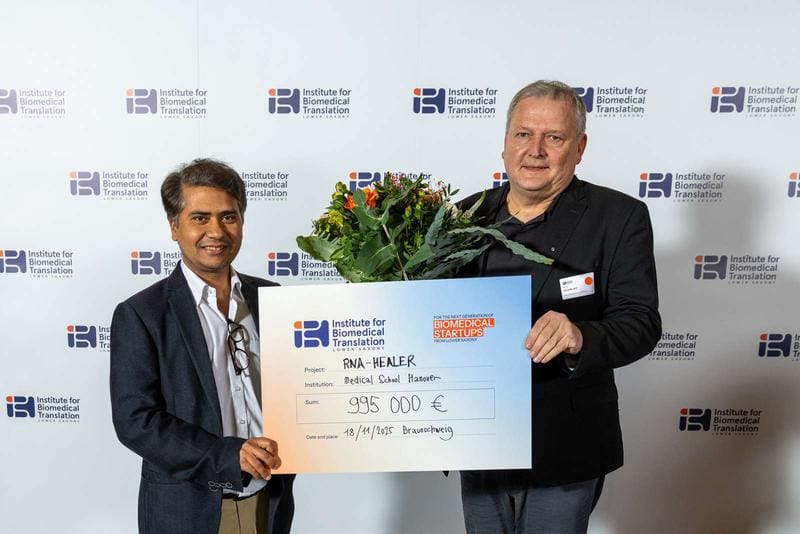MHH project “RNA Healer” wins start-up funding competition of IBT Lower Saxony
In its fifth round of funding, the Institute for Biomedical Translation Lower Saxony (IBT) has awarded around 2.5 million euros to innovative biomedical research projects in order to transfer cutting-edge research into clinical practice more quickly. The jury selected two winners from seven finalists: the “RNA Healer” project of the Hannover Medical School (MHH) headed by Professor Dr. Amar Deep Sharma and “Citrapeutics” from the Helmholtz Centre for Infection Research (HZI) in Braunschweig. “RNA Healer” will receive about one million euros to develop an RNA-based drug against advanced chronic liver fibrosis that is intended to reduce scarring and improve liver function in the long term. The success was praised by MHH President Professor Dr. Denise Hilfiker-Kleiner as a shining example of cutting-edge clinical research.
Liver fibrosis is caused by the remodeling and scarring of liver tissue in certain diseases and can lead to cirrhosis, liver failure or cancer, killing over 280,000 people in Europe every year. Since there are hardly any approved drugs for this disease so far, research is aimed at developing new antifibrotic therapies. Sharma uses mRNA to target genetic information and produce proteins for healing, supported by Clinic Director Professor Dr. Heiner Wedemeyer, who emphasizes the potential of this therapy regardless of the cause of fibrosis.

The second funded project “Citrapeutics” from the HZI will receive 1.4 million euros and is working on an innovative oral immunotherapy for cancer treatment. Both teams are to quickly transfer their results into clinical trials and achieve economic success through start-ups. The funding runs for two years and includes scientific and market-oriented further development, followed by the start of business activities and the search for external financing.
In addition to MHH and HZI, Leibniz Universit├żt Hannover, Georg-August-Universit├żt G├Čttingen and the University Medical Center G├Čttingen were also represented with other projects, including “ReMyeMe” at MHH, which researches anti-inflammatory approaches with polysialic acid for multiple sclerosis and similar diseases. In total, the IBT is now supporting ten projects with almost eleven million euros to accelerate the translation of biomedical research.
Editor: X-Press Journalistenb├╝ro GbR
Gender Notice. The personal designations used in this text always refer equally to female, male and diverse persons. Double/triple naming and gendered designations are used for better readability. ected.




